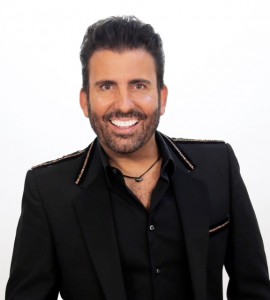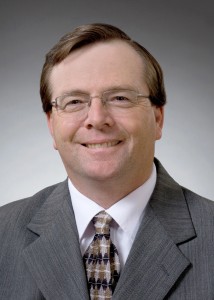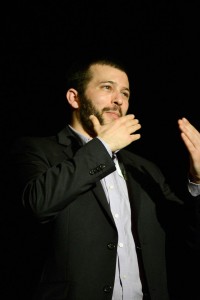LC Interpreting Services is now SignNexus!
DeafTalent Everywhere! Part II
Too often, young people who are deaf are discouraged from following their dreams. They are told “you can’t…” or “you won’t be able to…” and they are pushed to into careers that they are not passionate about. In reality, however, there are very few jobs Deaf people “can’t” do, especially once small adjustments are made to accommodate their specific skills and abilities. At the end of the day, our society limits people more than the actual experience of deafness ever could.
#DeafTalent is a cultural movement that is gaining traction in all areas of life. Talented Deaf individuals in fields across the board are working to defy social expectations, remove barriers, and prove that there are NO limits to what people who are deaf can do. My Deaf siblings and young nieces deserve every opportunity to manifest their own destiny and accomplish their own goals without suffering the prejudice of previous generations. It’s time for people to open their minds to the endless potential of our diverse population.
To explore the many facets of DeafTalent, I went right to the source: the Deaf community. Individuals working in a number of different fields were eager to communicate a message of Deaf empowerment. This is part II of an ongoing series about Deaf Talent in America; be sure to check out Part I and follow along for future installments!
John Maucere
Actor and Creator of SuperDeafy
www.johnmaucere.com
Inspirations:
 Growing up in Hollywood and being heavily influenced by the lifestyle, I became inspired to be in the entertainment industry. It seemed exciting watching people talk about the movie or theatre industry and to see them be entertained. In addition, I grew up attending social events at Deaf clubs to see my mother perform on stage. Back then, there were no communicative technologies such as phones and computers, and even more so, there was no captioning on Television. I was constantly left to imagine scenarios as I observed hearing people around me chatting away, watching TV shows and figuring out what had happened and so forth. I started to become the entertainment for my Deaf family, and discovered that I loved making them laugh. I enjoyed socializing and telling stories growing up. I also reveled in impersonating people such as my friends and teachers at school.
Growing up in Hollywood and being heavily influenced by the lifestyle, I became inspired to be in the entertainment industry. It seemed exciting watching people talk about the movie or theatre industry and to see them be entertained. In addition, I grew up attending social events at Deaf clubs to see my mother perform on stage. Back then, there were no communicative technologies such as phones and computers, and even more so, there was no captioning on Television. I was constantly left to imagine scenarios as I observed hearing people around me chatting away, watching TV shows and figuring out what had happened and so forth. I started to become the entertainment for my Deaf family, and discovered that I loved making them laugh. I enjoyed socializing and telling stories growing up. I also reveled in impersonating people such as my friends and teachers at school.
The more I became involved in entertainment, the more, my world opened up. Acting took me to places I never thought I would see and allowed me to travel the world, connecting with people from all walks of life. I realized then that it didn’t matter what country we were from, because in the end, we were from the same country: A deaf country. Acting is in my heart. It’s my passion, and it gives me joy to entertain others. I am able to share my experiences as a deaf person through an indirect medium, in which people can relate, and learn from one another.
Barriers:
Some of the biggest barriers I have in the entertainment industry include being offered roles that must include the ability to speak to conform to hearing society, and ignorant stereotypes about deaf people. Opportunities for deaf roles are limited especially through television and movies. Instead of waiting for sparse roles to come by, I create opportunities for myself such as The John Maucere Show, No Ordinary Hero: the SuperDeafy Movie, DEAFYWOOD to name a few. I also developed characters such as SuperDeafy and Mr. SeeTerp.
Deaf Advantage:
In the Deaf community, yes, it is an advantage because we share common experiences and can relate to skits and jokes regardless of where we live. The language of the Deaf is American Sign Language, which means that facial expressions and body movements are key components of our every day language. As a deaf actor it comes easily for me to be expressive. Furthermore, as a Deaf person that uses sign language, I am able to find ways to communicate and perform in a visual language that is understood by Deaf people around the world. Many of our expressions and body movements are universal which often transcends cultural and language boundaries.
Advice:
The key ingredient in being successful in film and entertainment is to have passion. With passion comes perseverance, and then when opportunities do not happen, you CREATE opportunities for yourself. It is also very important that you are not alone in your quest to act. There needs to be a team of people who have the same goals as you be it as an actor, director, filmmaker, editor or even friends and family as your backbone to keep pushing you to chase after dreams that may seem farfetched but can become a reality. You need to be surrounded by people who believe in you so that you can keep on believing in yourself. The entertainment industry is a tough business but anything is possible when you believe in yourself.
Gerard Buckley
President of the National Technical Institute for the Deaf, Rochester Institute of Technology Vice President and Dean
http://www.ntid.rit.edu/president/biography
Inspirations:
 I come from a family of educators (7 siblings total) who all believe in the power of education to change the world. The only difference for me is that I am a professional in the field of Deaf Education and
I come from a family of educators (7 siblings total) who all believe in the power of education to change the world. The only difference for me is that I am a professional in the field of Deaf Education and
I want to be sure education provides opportunities for Deaf and hard of hearing students to pursue careers on par with their hearing peers. I really believe that if we can provide quality access to educational opportunities, there are no limits to what young Deaf and hard of hearing students can accomplish. In addition to my family, I was inspired by educators here at NTID who believed in me and my aspirations even when I had doubts. Now I seek to pass along the same type of support to Deaf and hard of hearing students that we have the honor of serving.
Barriers:
The biggest barriers I have faced are attitudinal and communication-based. There is nothing more frustrating than dealing with the attitudes of individuals who simply do not yet understand the capabilities of Deaf and hard of hearing professionals. Unfortunately attitudinal barriers remain very prevalent in American society where individuals tends to “label” humans on the basis of their own limited experiences. All too often I still see and hear comments which reflect a basic lack of respect for, and believe in the potential of Deaf individuals to serve in particular roles of functions without any real consideration of their abilities. This leads to lost opportunities for both Deaf individuals and lost opportunities for hearing individuals to benefit from the skills and experiences of these Deaf individuals.
Communication based barriers remain an obstacle at times. When a film is not captioned, an interpreter not provided, or meaningful access not considered, communication barriers arise and the opportunities for learning and growth are limited. As an educator I believe in the power of educating our Deaf youth so that they have the tools necessary to self-advocate in situations such as this and move forward towards their aspirations.
Deaf Advantage:
Being Deaf in my role is a gift that enables me to connect with the students, faculty and staff that I serve at NTID. When I speak to Deaf students throughout my travels, I always end with a statement that I am looking forward to the day when I visit their school or program and the next leader is a Deaf individual like themselves. I talk openly about the importance of the next leaders of NTID being Deaf people of Color, Women and others who traditionally may have been excluded from opportunities for leadership in the past. I want every student at NTID to see a role model like themselves and know that opportunities are within their grasp if they work hard and commit to learning and growth.
Advice:
Higher education requires a passion for students and an undying belief in the potential for these students to achieve their dreams. Higher education is a nobel enterprise where students and their families entrust us with the opportunity to help young individuals find themselves and their career path. A career in higher education also requires that we are constantly seeking better ways to learn and teach and that we never stop in our attempt to grow ourselves as human beings. The future of higher education remains very promising as long as we continue to deliver on the promises we make to students and their parents. This requires that we are grounded in the reality of the workforce market place and continually asking ourselves how we can best prepare students for career success.
I encourage Deaf students interested in careers in higher education to get a solid undergraduate education which prepares you well for graduate and advanced studies in a discipline area where one wants to teach. As I said at the top of this paragraph, one must have passion for the students to be successful this field. I remain honored to serve in this role and to represent the outstanding students, faculty, staff and alums of NTID of whom I am so proud.
Rikki Poynter
Vlogger + Blogger, Accessibility Advocate
https://www.youtube.com/user/rikkipoynter
Inspirations:
 First and foremost, I really needed something to do! That’s really the number one answer whenever someone asks me why I started YouTube and this and that. But after doing makeup videos for years and getting nothing out of it emotionally and physically, I needed something better, and to do something better. So after the first deaf-related video went up and received very good feedback, I knew I could do something with that and continued.
First and foremost, I really needed something to do! That’s really the number one answer whenever someone asks me why I started YouTube and this and that. But after doing makeup videos for years and getting nothing out of it emotionally and physically, I needed something better, and to do something better. So after the first deaf-related video went up and received very good feedback, I knew I could do something with that and continued.
Barriers:
Getting people to listen and read what I, we, all of us, have to say. Though there are many people more than willing to sit and listen, there are just as many others that don’t want to and would rather stick their fingers in their ears or over their eyes when it comes to certain issues.
Deaf Advantage:
Other d/Deaf/HOH people just like me have been looking for vloggers. We had some channels from d/Deaf/HOH artists that made music videos and web TV series, but I hadn’t been able to find someone who is d/Deaf/HOH that just sat down and talked about stuff. It’s nice knowing that other people can watch my channel and see someone who relates to them and captions videos so they know what’s being said.
Advice:
Don’t be afraid to do it. It took a while, but right now, we’re getting closer and closer into the “spotlight,” for lack of a better word. With Nyle DiMarco winning America’s Next Top Model and Spring Awakening making a huge impact in mainstream theatre, more people are sitting down and willing to listen. Come up with a basic idea or plan that you want to do, find other d/Deaf/HOH people (we’re everywhere) and get together and work.
Davin Searls
Executive Director at Discovering Deaf Worlds
http://www.discoveringdeafworlds.org/about
Inspirations:
 I never intended to become involved in international development or the non-profit sector. Shortly after graduating from Sarah Lawrence College with my BA in Liberal Arts, I took a job teaching at a Deaf program at a university in China. I was there for nearly a year, during which I met many intelligent, passionate Deaf individuals who were frustrated, knowing that upon graduation, they would have little to no success at finding a job. They were eager to try and change the system, but didn’t know where to begin – and many, having been told they are inferior all their lives, didn’t have the confidence to do so, either.
I never intended to become involved in international development or the non-profit sector. Shortly after graduating from Sarah Lawrence College with my BA in Liberal Arts, I took a job teaching at a Deaf program at a university in China. I was there for nearly a year, during which I met many intelligent, passionate Deaf individuals who were frustrated, knowing that upon graduation, they would have little to no success at finding a job. They were eager to try and change the system, but didn’t know where to begin – and many, having been told they are inferior all their lives, didn’t have the confidence to do so, either.
I left that experience resolute to support people like them – Deaf people in the developing world with dreams and hopes for their communities. I was fortunate enough to combine efforts with my friend and co-worker, David Justice, and that led to us establishing Discovering Deaf Worlds as a non-profit organization.
Barriers:
There are many, but I’ll pick two. One: David and I both served as full-time volunteers for the organization from 2007 until 2013, living simply and with family, but draining our savings as a result. We are fortunate enough to now earn a salary, not to mention we have 15 incredible board members and many more contractors and volunteers who support our efforts. At the same time, we are still two people doing a workload for many, and we look forward to expanding the organization’s staff within the next year or two.
We also face another serious barrier: lack of awareness. Too many people who do not sign / are not familiar with Deaf culture do not believe that Deaf people can succeed on the same level as general society. As a result, these people will make decisions FOR Deaf people rather than including them or allowing them to make their own decisions. And too often, Deaf people are also unaware of their potential, lacking confidence in their own abilities – which ultimately means that decisions are very rarely made BY Deaf people. It is this barrier that our work aims to surmount- by providing capacity building and organizational management training, we ensure that Deaf leaders are capable and confident in managing their organizations and influencing policy and practices that impact them and their communities.
Deaf Advantage:
On a personal level, experiencing life as a Deaf person in a hearing world has taught me self-advocacy and made me stronger. On a larger level, the Deaf people we have trained have often told us that our trainings have been much more beneficial to them than other “hearing” trainings – because we understand their needs as Deaf people, how they communicate, the uniqueness of their cultures, and so on.
Advice:
Do all you can to learn from others. Ask questions, don’t be afraid to try, and most of all: pursue your passions!
———
These interviews represent only a small number of the countless individuals who are out there proving on a daily basis that when you have passion and motivation, anything is possible! Talented people who are d/Deaf can be found in every field at every level, working harder than most to rise up through the ranks. Deafness is not a barrier to success, but prejudice ignorance can be. I am excited and honored to share perspectives from Deaf professionals pursuing careers they love, and I look forward to future installments in this series!







